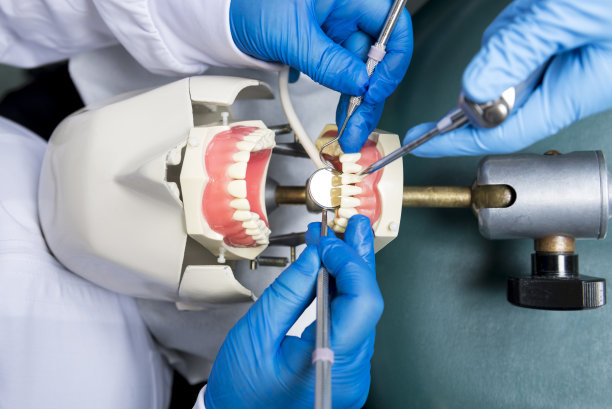Summary: Root canal treatment is a vital procedure aimed at saving a decayed or infected tooth. To ensure its success and promote optimal dental health, certain essential precautions must be taken. This article explores four key aspects: patient preparation, proper diagnosis, procedural sterilization, and aftercare management. Each section will delve into necessary strategies, emphasizing the importance of teamwork between the dentist and the patient for a successful outcome. Adopting these precautions not only enhances the effectiveness of the treatment but also contributes to long-term dental health, making it imperative for patients to understand and engage in these practices.
1. Patient Preparation for the Procedure

Patient preparation is crucial for a successful root canal treatment. Before the procedure, it is essential for patients to communicate openly with their dental professionals about their medical history, including any existing health conditions or allergies. This information allows the dentist to customize the treatment plan and select appropriate medications, ensuring a seamless experience.
Additionally, patients should arrive well-rested and hydrated for their appointment. Being in good physical condition can reduce anxiety and promote tolerance for the duration of the procedure. Moreover, pre-procedure instructions such as fasting or avoiding certain medications must be followed diligently to minimize complications.
Finally, establishing a support system is beneficial. Encouragement from family members or friends can help patients feel more comfortable and relaxed during the treatment. Psychological readiness is just as important as physical preparedness for a successful root canal treatment.
2. Proper Diagnosis and Treatment Plan
A proper diagnosis is fundamental to the success of a root canal treatment. Dentists use a variety of tools, including X-rays and clinical evaluations, to ascertain the extent of tooth decay or infection. An accurate diagnosis not only guides the treatment plan but also helps anticipate potential challenges that may arise during the procedure.
Once diagnosed, the dentist will develop a comprehensive treatment plan, detailing each step of the procedure. This transparency builds trust and confidence in patients and ensures they are mentally prepared for what to expect. Clear communication about risks, benefits, and alternatives also enhances decision-making.
Moreover, dentists should regularly update their skills and knowledge regarding the latest advancements in endodontics. Staying abreast of new technologies and techniques improves overall treatment efficacy and patient safety, ensuring that every case is managed with the highest standard of care.
3. Importance of Sterilization Practices
The role of sterilization in root canal treatment cannot be overstated. Dentists must adhere to strict sterilization protocols for all tools and materials used during the procedure. This practice not only prevents infections but also promotes patient safety throughout the treatment process.
Furthermore, maintaining a sterile environment is essential. This includes using disposable items whenever possible, disinfecting surfaces, and ensuring that reusable instruments are adequately sterilized. Such diligence protects both the patient and the dental staff from potential cross-contamination.
Even the dentists personal protective equipment (PPE) should be meticulously checked for contamination. The use of gloves, masks, and protective eyewear is necessary to maintain a safe environment during the procedure. Thus, effective sterilization practices are paramount in ensuring a smooth root canal treatment.
4. Aftercare for Optimal Recovery
Post-treatment care is as vital as the procedure itself. After the root canal treatment, patients receive specific aftercare instructions, including pain management techniques and guidelines on diet. Adhering to these recommendations can significantly enhance recovery and prevent complications.
Regular follow-ups are also essential. Scheduling appointments with the dentist allows for monitoring the healing process and addressing any concerns that may arise. Early detection of complications can prevent more severe issues and ensure successful recovery.
A commitment to personal dental hygiene post-treatment is equally important. Patients should maintain a routine of regular brushing and flossing, alongside scheduled dental check-ups. This proactive approach fosters optimal dental health and supports the longevity of the treated tooth.
Summary:
In conclusion, successful root canal treatment requires a multifaceted approach involving thorough patient preparation, accurate diagnosis, strict sterilization practices, and diligent aftercare management. Each of these aspects contributes to minimizing complications and promoting overall dental health.
By prioritizing these essential precautions, both dentists and patients can work together to achieve the best possible outcomes. An informed patient is crucial to the successful execution of any dental procedure.
This article is compiled by Vickong Dental and the content is for reference only.
Vickong Dental
Vickong Dental is a large medical group established in Hong Kong in 2008 by professors from well-known medical universities in Guangdong and Hong Kong, as well as medical doctors from key national '985' universities (including Master's supervisors and senior professors). The chain of branches brings together expert dentists with PhDs and Master's degrees from Hong Kong and Mainland China, committed to providing high-quality dental treatment.
"Vickong Dental Practices the University Motto of 'Healing and Serving Society,' with a Stable Operation for Sixteen Years. It Has Been honored with Hong Kong Enterprise Leaders's Choice,' and is a Global Trusted Implant Center for the Nobel Implant System. Recommended by Hong Kong Metro Broadcast and Guangdong Television, it Serves Customers from Over Thirty Countries and Regions, Gaining the Trust and Favor of Citizens from the Guangdong-Hong Kong-Macau Greater Bay Area and Surrounding Cities.

Thousands of customers' unanimous praise
The most recognized and highly recommended dental service by customers in the Guangdong-Hong Kong-Macau Greater Bay Area
We Ensure You Receive Detailed Care and Attention Here
Hong Kong standards, Shenzhen prices, Your Trusted English-speaking dentists

Vickong Dental Medical-Grade Instrument Disinfection Process
Vickong Dental Medical-Grade Instrument Disinfection Process

Vickong Dental Chain: A Warm and Comfortable Environment for Treatment






Appointment Hours

Q&A
Why choose Vickong Dental?
Vickong Dental practices the university motto 「Medicine to Benefit Society」, with each branch bringing together highly qualified dentists with doctoral and master’s degrees from Hong Kong and the Mainland, and has maintained seventeen years of steady operation。Recipient of 「2024 Hong Kong Enterprise Leaders Brand」, 「2025 Hong Kong Enterprise Leaders Brand」, a Nobel Biocare Global Trusted Implant Center, and a brand recommended by Metro Radio Hong Kong and Guangdong TV。
To date, we have served customers from more than thirty countries and regions,earning exceptionally high word-of-mouth recognition and trusted recommendations from residents across the Guangdong-Hong Kong-Macao Greater Bay Area and surrounding cities
We have eight major branches in Zhuhai、Shenzhen,and a consultation and service assurance center in Hong Kong,so you can book a free consultation at any time for any questions,which is very reassuring.
If I do not accept the quotation after the CT scan, will I be charged??
No! As long as the actual treatment has not started, you will not be charged any fees.
Will there be any additional charges during the treatment process?
No, there won’t be any additional charges. Before treatment begins, we will clearly explain the treatment plan and its corresponding fees. Only after the patient agrees and signs the consent form will we proceed with the dental service.
Can I pay in Hong Kong dollars?
Yes. Vickong Dental accepts payment in Hong Kong dollars. The amount will be converted based on the exchange rate of the day, and the applicable rate will be clearly communicated to you in advance.
Can I reschedule my appointment at any time?
Yes. Please contact us via **WeChat** or **WhatsApp** as early as possible, providing your original appointment time and details, along with your preferred new date and time slot for rescheduling.













